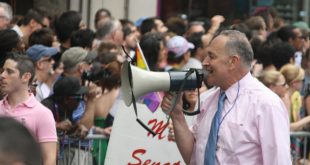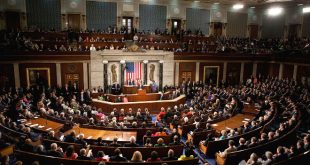As the “second wave” of the coronavirus continues and infections increase, too many politicians are knee-jerking to reimpose harsh restrictions like business shutdowns, curfews, and home confinements. These types of sweeping and overly restrictive measures cause needless harm, especially for the majority of generally healthy Americans who will experience moderate to no symptoms if they catch the virus.
More effective approaches include doing more to protect vulnerable populations, like the elderly and those with underlying medical conditions; getting newly approved rapid at-home tests into the hands of more Americans so those who are infected can be immediately identified and quarantined; and preparing for a potential vaccine by developing a plan for quick distribution and prioritizing who gets it first.
Shutting down entire states only worsens the economic devastation as well as the health and welfare of otherwise healthy people. The answer to defeating the coronavirus can’t be choosing between our health and our economy. The answer isn’t either-or, rather it’s both-and. Our economic health has an incredible effect on our physical and mental health, and vice versa. The longer that healthier, lower risk people are out of work, deprived of contact with family and friends, and sheltered at home, the more public health suffers, both physically and mentally.
Governors and local officials need to make shutdown decisions on a targeted, county-by-county basis, based on virus case numbers and infection rates. And such actions must be very temporary.
Research shows that areas where state and local officials have allowed places to safely reopen are well on their way to economic recovery. Meanwhile, in areas with excessive restrictions, including business and school closures, families and children are struggling.
We’ve also seen that strict lockdown orders in many European countries haven’t prevented a second wave of the virus.
A more effective approach to stopping the spread is widespread testing — figuring out who has the virus and temporarily quarantining them from others as they ride out the illness.
The Food and Drug Administration has just approved COVID-19 self-tests that can be easily conducted at home or work and don’t need to be sent off to a lab. Rapid manufacture and distribution of these kits is now key. Quickly determining who is infected and who isn’t can go a long way toward mitigating the spread of the virus and makes going into businesses, schools, churches, and other facilities much safer.
Especially for nursing home and hospital staff who work around vulnerable people, being able to rapid test each day before going into work will help prevent more outbreaks and deaths.
States also must prepare an effective distribution strategy for a soon-to-be-released vaccine. State public health agencies must prioritize who should receive the vaccine first. Those at the top of the list should include people with the highest degree of transmission risk and people who may experience the severest consequences of an infection. That means starting with front-line health care workers, the elderly, and those with underlying medical conditions.
States should also immediately allow pharmacists to administer the vaccine, just as many already allow them to administer flu and pneumonia vaccines. Pharmacists are positioned to ensure fast and efficient mass immunization, and that kind of rapid response could prevent millions of additional infections and tens of thousands of additional deaths.
A complete roadmap to recovery (found at www.CoronavirusCommission.com) has already been created by the National Coronavirus Recovery Commission and contains 265 specific, actionable recommendations, including those mentioned above. The roadmap was developed for governments, businesses, churches, educational institutions, and community organizations to navigate as safely as possible through the pandemic.
Instead of indiscriminate and ineffective statewide shutdowns, public health measures should be focused on continuing to inform people how to reduce their chances of catching and spreading COVID-19, doing more to protect the elderly and those with underlying conditions, distributing rapid at-home tests to determine who may be contagious, and preparing a strategy for rapid public vaccination once a vaccine is released.
Lockdowns and prohibiting families from visiting one another in their own homes this holiday season aren’t the answers, and there’s no reason they should be the go-to tool for our leaders. It’s time that the same politicians who regularly lecture us about “following the science” actually look in the mirror and take their own advice.
Following the science and assessing everything that we’ve learned in the months since the pandemic first struck will help us to more quickly defeat this deadly disease; recover our jobs and our economy; and get us reunited with family and community and back to some sense of normalcy again.
 Kay C. James is president of The Heritage Foundation (heritage.org) and chairman of the National Coronavirus Recovery Commission.
Kay C. James is president of The Heritage Foundation (heritage.org) and chairman of the National Coronavirus Recovery Commission.
The views expressed in opinion articles are solely those of the author and are not necessarily either shared or endorsed by Black Community News.
 CURE News and Clergy Blog News and Commentary for Christians
CURE News and Clergy Blog News and Commentary for Christians



